The Glorisun Network partners offer partial and full fellowships for Masters and Ph.D. students. Recipients of these fellowships will have the opportunity to participate in a multi-year international and interdisciplinary project, sponsored by SSHRC and led by Jinhua Chen (titled: From the Ground Up: East Asian Religions through Multi-Media Sources and Interdisciplinary Perspectives, 2016–2023). The fellowships offer opportunities to participate in research visits to East Asia, and to interact with international scholars and students to develop skills in working with local partners and international peers. Recipients may also receive training on how to identify, document, photograph and transcribe primary source materials. Students will learn to work in diverse multicultural, international, and interdisciplinary environments.
Hamburg University
|
Ruilong GONG
|
Ph.D. Fellowship 2024-2027 | Ruilong Gong is a Ph.D. student currently working in the Centre for the Study of Manuscript Cultures (CSMC) at the University of Hamburg. He got a Bachelor’s degree of Science in Material Chemistry and a Bachelor’s degree of Literature in Chinese Language and Literature at Peking University in 2018. From 2019 to 2023, he got his
M.A. degree in Chinese Literature at National Taiwan University with a thesis titled A Study of the Book Format and Reading Method of Six Dynasties: A Case Study of Tao Yuan-Ming. During the study of his M.A., Gong gradually noticed some textual phenomena that can be traced back to the early China, in multiple-text manuscripts from Dunhuang, and published several papers on this topic. Thanks to the Glorisun Fellowship, he is able to continue to explore the text generation and circulation in ancient Chinese manuscripts with the Ph.D. project at the University of Hamburg, studying the paratexts and addenda at the end of scrolls including the Buddhist and non-religious texts in the early and medieval China, via textual and manuscriptological perspectives. |
|
Yu GAO
|
Ph.D. Fellowship 2019-2022 | With a B.A. in Law, Yu Gao has been trained both in Anthropology at East China Normal University (M.A. 2015), and Chinese Studies at Chinese University of Hong Kong (M.Phil. 2017). From 2012 to 2015, she explored the interrelations among the state, the temple, and the followers in a Buddhist temple in Hangzhou. From 2015 to 2017, she focused on popular religions in local society in late imperial China with a historical anthropology approach. Thanks to the Glorisun Fellowship, she could continue to explore her interest in Chinese religions with the Ph.D. project, studying the China branch of the transnational Buddhist monastery Foguangshan via the historical and anthropological approaches at Hamburg University. During the last two years, after several field visits to the cities in the Yangtze River Delta, now she is back in Hamburg to work on the final dissertation. |
|
LIU Chen
|
Ph.D. Fellowship 2021-2022 | Chen Liu is a Ph.D. student currently working in the Centre for the Study of Manuscript Cultures (CSMC) and the Asia-Africa-Institute (AAI) in Hamburg University. Her Bachelor and M.A. are both English major, and she got her Bachelor’s degree at Hebei University in English philology in 2007-2011 and her M.A. at Tianjin University of Commerce in “Foreign Linguistics and Applied Linguistics” in 2011-2014. During the study of her M.A., Chen Liu gradually learned several languages, such as French, Latin, and Sanskrit. She has learned Sanskrit in CASS in Peking, and after one year and a half learning, also learned Palī language as a beginner.
At that time, she had read some classic Sanskrit texts and Buddhism canon and gotten very interested in Buddhism, Buddhist languages and cultures. Therefore, she gave up enrolment of the teaching job at her M.A. University and continued her career in Buddhist studies with her parents’ support. She learned Tibetan and Sanskrit chanting in 2014-2016 and enrolled in Tsinghua University as a Ph.D. student in “Minor folks’ languages and literature” of Sinology department in 2017. Chen Liu has learned Tangut and continues learning Tibetan, and has worked on Khara-khoto Manuscripts for three years. Chen Liu came to visit Hamburg University in 2020 and at the same time as Covid 19. Luckily, her supervisor Professor Friedrich accepted her as a student and kindly helped with her life and study in Hamburg, for which she is very grateful. She is currently working on the manuscripts related to Zhijian, a late 10th century Chinese monk and his journey to pursue the true Bodhisattva precepts in India, and enjoys exploring the ritual practices and Zhijian’s idea about the practicing of Bodhisattva precepts in his time. |
|
Léo MESSERSCHMID
|
Ph.D. Fellowship 2019-2020 | Léo Messerschmid will be finalizing his Ph.D. thesis’ draft (working title “The Tradition of Chinese Esoteric Buddhism in Its Reception in Medieval Japan. A Study of the Keiran shuyôshû and its Chinese Antecedents”). In 2017 he participated in FROGBEAR research cluster in Japan which included field trip to temples, museums, and libraries in the Kyôto area. The trip afforded him the opportunity to access materials he works with first-hand and in their extant manuscript editions. |
|
Franz VEIT
|
M.A. Fellowship 2018-2019 | After transitioning from South Asian Studies at the University of Heidelberg to Buddhist Studies at Hamburg University, Franz aims to further expand his proficiency in Pali, Sanskrit and Japanese. He is spending the winter term of 2018/2019 at the renowned International College for Postgraduate Buddhist Studies, Tokyo. He is interested in contemporary, modern and ancient hermeneutical practices across various traditions on questions of ethics and politics, since the dramatic global transformations of societies and their polities in the last two centuries also pose major questions for the exegesis of Buddhist teachings. How should we make sense of “universal monarchs”, royal metaphors and a history of close relations between rulers and Buddhist institutions in post-monarchical worlds? Was Buddhist political praxis and philosophy merely ad hoc and opportunistic or may there be even a consistent attitude in the rājanīti-genre from which one would have to extrapolate towards modern political affiliations? But maybe we find ourselves in a tetralemma between history and philosophy, kings and citizens, as well as between the lovers of wisdom and those of power. |
|
LIU Qi
|
M.A. Fellowship 2018-2019 | Ms. Liu Qi is enrolled as MA student of Buddhist Studies. For her thesis she uses methods from cultural anthropology and religious studies in order to analyze contemporary practices of sky burial in the Autonomous Region of Tibet and adjacent regions. She currently visits with Professor James Laidlaw, holder of the William Wyse Professorship of Social Anthropology at Cambridge University, with the goal of developing methodologies appropriate to her research. She received a one-year scholarship that helps defray her living expenses in Hamburg and Cambridge. |
|
Marta SANVIDO
|
Postdoctoral Fellowship 2022–2024 |
Dr. Marta Sanvido earned her Ph.D. in East Asian Studies in 2019 from Ca’ Foscari University of Venice (Italy), specializing in Japanese Buddhism and Religions, East Asian Religions, and Manuscript Studies. Prior to joining the University of Hamburg as a Postdoctoral Researcher, she served as the Shinjo Ito Postdoctoral fellow at the University of California, Berkeley (2021–2023), and as a lecturer in East Asian Studies at Ca’ Foscari University of Venice (2019–2020). In February 2024, she has interrupted her position as Glorisun Postdoctoral Fellow at the University of Hamburg in order to make use of the research facilities at the renowned Komazawa University in Tokyo. There, she pursues her project on exploring how religious ideas and concepts were interpreted, adapted, and reimagined by marginalized individuals and peripheral communities. Her Glorisun Fellowship and funding has allowed her to participate in the AAR conference as well as perform archival research at the University of Hawai‘i, make the best of the 2023 Japan Foundation Research Fellowship, and successfully apply for the 2024 Robert H. N. Ho Family Foundation Early Career Research Fellowship in Buddhist Studies. Due to career opportunities elsewhere, Dr Sanvido has chosen to discontinue her fellowship at the University of Hamburg effective October 18, 2024. |
|
Nelson Elliott LANDRY
|
Postdoctoral Fellowship 2022–2024 |
Dr. Nelson Landry hails from Montréal, Canada, where he completed his B.A. at McGill University in World Religions. He then moved to China, where he did foundational language courses and an M.A. in Buddhist Studies at Peking University in Mandarin. After completing his Master’s degree, he moved to England where he pursued a DPhil at the University of Oxford, completed in 2023. His doctoral project looked at the Tang dynasty monastic figure Daoxuan 道宣 (596–667) and his place in Buddhist Chinese social history. His interests lie in Chinese Buddhist historical narratology, material culture, as well as the role of miracles and revelations in the Buddhist imaginaire. The Glorisun Postdoctoral Fellowship at the University of Hamburg has so far enabled him to continue work on his monograph (working title: ‘Miracles in Medieval Chinese Buddhism: An analysis of Daoxuan’s Ji shenzhou sanbao gantong lu 集神州三寶感通錄), scheduled to be ready for submission by the end of the funding period, to organize an eagerly awaited workshop on ‘Digital Humanities and Their Application in Buddhist Studies’, and to participate in academic conferences in San Antonio (AAR), Cambridge, Vienna, and Leipzig, contributing to the extension and solidification of his academic network. Additionally, he is currently working on a new project that concentrates on medieval Buddhist religious culture in northern China. |
|
Nadine Bregler |
Postdoctoral Fellowship 2025-2026 |
Nadine Bregler holds a B.A. in East Asian Studies from the University of Heidelberg and an M.A. in Sinology from the University of Hamburg, where she wrote a thesis on Dunhuang manuscripts preserving poems attributed to the Chinese Buddhist poet Wang Fanzhi 王梵志. She recently completed her Ph.D. in Sinology at the University of Hamburg, while affiliated with the Centre for the Study of Manuscript Cultures (CSMC) and the Cluster of Excellence Understanding Written Artefacts. Her dissertation, Collecting Literary Works: Medieval Chinese Multiple-Text Manuscripts (MTMs) from Dunhuang (9th and 10th Centuries), examines the compilation, preservation, and transmission of multi-text manuscripts from Dunhuang (present-day Gansu Province). Using codicological, paleographical, and philological methods, she analyses material features such as layout, script, and structural organization in relation to textual content. By placing these manuscripts in their historical and literary contexts, her study contributes to broader discussions on standardization, circulation, and the materiality of written artefacts in medieval China.During her Glorisun Postdoctoral Fellowship at the University of Hamburg, she builds on her previous engagement with Dunhuang manuscripts to explore the transmission and transformation of Chinese literary anthologies from manuscript to early print culture, with a particular focus on literary Buddhist collections dating from the 9th to 12th centuries. The project investigates how texts were compiled, organized, and edited during the Song dynasty (960–1279), especially in light of the loss of many Tang-era (618–907) manuscripts. Through a qualitative philological analysis, the study compares manuscript and printed versions to trace editorial interventions and shifts in compilation practices. Special attention is given to paratextual elements such as titles, author attributions, prefaces, and material features, offering insight into how these anthologies were historically used and understood. The research includes both multi-author collections, such as those from the Dunhuang corpus, and single-author anthologies preserved in both manuscript and print. These comparisons will illuminate the interplay between manuscript and print cultures in medieval China. The one-year Glorisun Fellowship provides a vital opportunity to deepen and refine this research. Future directions include expanding the scope to include secular anthologies, thereby enriching our understanding of textual transmission, editorial innovation, and literary culture in the broader context of medieval China. |
University of British Columbia
|
Jeremy JAMES
|
M.A. Fellowship 2022-23 | Jeremy James is an M.A. candidate in Asian Studies at the University of British Columbia and a graduate of the Department of Chinese Language and Literature at East China Normal University in Shanghai. His research interests include various aspects of traditional Chinese culture, namely literature, history, philosophy, and religion. Prior to enrolling at the University of British Columbia, he spent several months living with a monastic community at a Chinese Buddhist temple in Canada to learn about their way of life. |
|
Xian’ao SHI |
Ph.D. Fellowship 2021-25 | Xian’ao received her M.A. in Buddhist Studies from the University of Hong Kong and SOAS, University of London. Currently she is a Ph.D. candidate in the Department of Asian Studies, UBC. Her research interest includes the history of Chinese Buddhism, Humanistic Buddhism, and topics on Buddhism and modern society. She is now working on her dissertation project on Chinese Buddhist women in the early twentieth century. |
| Mingli SUN
|
Ph.D. Fellowship 2021-2025 | Mingli Sun is a Ph.D. candidate in the Department of Asian Studies at the University of British Columbia, as well as a Research Assistant for Frogbear project (https://frogbear.org) and Glorisun Global Network for Buddhist Studies (https://glorisunglobalnetwork.org). Her research area is Tang Buddhism in the regions of Sichuan and two capitals (Chang’an and Luoyang), with a particular focus on multi-media and interdisciplinary studies of texts and images. She has published over the past few years a dozen of journal articles and book chapters both in Chinese and English.
Major publications include:
|
|
Weiyu LIN
|
M.A. Fellowship 2018-2020 | Weiyu transitioned from his undergraduate studies of Spanish and French literature to studying Buddhism. In this new field, he retained his inclination to stay close to the text and language. He has started his studies of Tibetan and Japanese, hoping that one day he could traverse across Buddhist scriptures and scholarship with minimum language barrier. As for the classical Chinese, he is putting himself through intensive translation exercises, using primarily Fazang’s philosophical treatises that bear on the practice of panjiao (doctrinal classification). Through translation and annotation, Weiyu wishes to refine his sensitivity to Buddhist language and to make his foray intostudying the intellectual history of medieval Chinese Buddhism. |
|
Zeng YANG
|
Research Associate Fellowship 2022–2025 |
Zeng Yang specializes in the study of religious culture in medieval East Asia. His recently completed project examines the dynamic interplay between religious ideologies and dynastic crises in eighth-century China. He highlights the crucial differences between Buddhist and indigenous Chinese political cultures and demonstrates how the former was strategically employed to counteract “Heaven’s denunciation” of the Tang dynasty’s legitimacy. He is planning to assess the research project centered on the Tianbao Tang novel, with a particular focus on its portrayal of religious marvels. |
University of California, Berkeley
|
Howard MU
|
M.A. Fellowship 2019-2021 | Howard Mu received a B.A. in Philosophy, and Government and Legal Studies from Bowdoin College (2018), and an M.A. in Asian Studies from UC Berkeley (2021). During the two years of his M.A. program, he studied Sanskrit and Japanese, and completed several research projects on medieval Chinese Buddhist intellectual history. He is primarily interested in Buddhist philosophy, especially Chinese Madhyamaka thought. His research currently focuses on Jizang and his commentaries on Indian Madhyamaka treatises. |
| Zhoulun XIE
|
M.A. Fellowship 2019-2021 | With the generous support of the funding, Zhuolun Xie completed an M.A. thesis entitled Rethinking Soushan tu: The Painting of the Search in the Mountains from the Collection of the Berkeley Art Museum and Beyond during her time at Berkeley. In 2021, Zhoulun became a Ph.D. student studying premodern Chinese art in the Department of Art and Archaeology at Princeton University. Her recent research interests include paintings of religious themes from the tenth to the seventeenth centuries, especially their consumption and circulation. She also has an interest in Buddhist visual and material culture in Dunhuang. Zhuolun received her M.A. in Asian Studies from UC Berkeley and her B.A. in Art History from Boston College. |
| Max BRANDSTADT
|
Ph.D. Fellowship 2018-2019, 2021 | Max Brandstadt is a Junior Fellow at the Harvard Society of Fellows. He works on the history of Sui and Tang Buddhism, particularly the Three Levels Movement, as well as the relationship between religious and political forms of authority. |
|
Meghan HOWARD
|
Ph.D. Fellowship 2018-2020 | Meghan Howard holds a B.A. in Tibetan and Himalayan Studies from Harvard University (2004). Her work as a Tibetan translator and interpreter led her to Songtsen Library in Dehradun, India, where she spent four years working on a translation project involving Dunhuang materials related to the history of Tibet’s imperial period (7th to 9th centuries). Her research interests center on cultural and religious exchanges between Tibet and neighboring peoples from the imperial period through the fourteenth century. She is currently writing a dissertation on Facheng 法成/Chödrup (Chos grub, d. c. 860), an influential Buddhist monk and translator of Buddhist scriptures from Chinese to Tibetan and vice versa. |
|
Fedde de VRIES
|
Ph.D. Fellowship 2018-2019 | Fedde de Vries holds a B.A. in Religious Studies from Leiden University, the Netherlands, (2012) and an M.A. in Asian Studies from University of California, Berkeley (2015). After obtaining his M.A. he spent a year at Dharma Realm Buddhist University, Ukiah, California, as resident translator. His primary research interest is the thought of the prolific Huayan author Chengguan. Fedde endeavors to put this research in the context of the history of Buddhist thought and, where possible, modern philosophy. |
|
Xiaoming HOU
|
Postdoctoral Fellowship 2022–2024 |
Hou Xiaoming is a scholar of Chinese Buddhism specializing in cross-cultural transmission and translation. She received her Ph.D. from EPHE/PSL (École Pratique des Hautes Études/ Université Paris Sciences et Lettres) in Paris, Department of Religions and Systems of Thought, in the area of History of Religion and Religious Anthropology, in 2022. Her doctoral thesis, entitled Pratiquer le bouddhisme en chinois: traduction et reconstruction des enseignements sur la méditation bouddhique du IIe au VIe siècles en Chine, focuses on the interdependent dynamics between meditation and exegesis in early medieval China. She received her M.A. in Asian Studies from EPHE in 2015, her B.A. in French Literature, and a secondary major in Chinese Literature from Fudan University in 2013. Thanks to the Glorisun Fellowship, she is able to devote herself fully to the writing of two book projects during her stay in Berkeley. The first focuses on reshaping his doctoral dissertation in French into an English book manuscript tentatively entitled Practicing Buddhism in Chinese: Meditative Exegesis and Exegesis for Meditation. The second is a French book manuscript originating from her M.A. dissertation. It explores the transformation in the representation of Buddhism in francophone Europe from the eighteenth to the nineteenth century by studying the French translations of the Sutra of Forty-two Chapters. In 2024 spring semester, she taught a course titled “Readings in Chinese Buddhist Texts: Practicing Scriptures in Chinese Buddhism”. Readings in Chinese Buddhist Texts: Practicing Scriptures in Chinese Buddhism This course is designed as intensive training regarding how to read Chinese Buddhist texts, both from the perspective of methodological reflections and hands-on reading and translation practice. The seminars are generally organized around two main themes. The first is devoted to discussions of secondary studies that explore how historical actors engaged with Buddhist texts. It experiments with the boundary of Chinese Buddhist textuality, explores the many ways Buddhist texts were practiced, and its relationship with texts from other religious traditions. The second focuses on how we, as researchers, can engage with Chinese Buddhist texts. It is devoted to a comparative reading and translation of Chinese primary sources in a variety of genres connected through a common theme. For the spring semester of 2024, we will read texts that deal with Buddhist meditation in early medieval China. |
University of Cambridge
|
Ilay GOLAN |
Ph.D. Fellowship 2022 |
Ilay Golan is a Ph.D. student in the Faculty of Asian and Middle Eastern Studies, Cambridge University. During his studies for B.A. and M.A. degrees in Tel Aviv University he studied Mandarin and Classical Chinese, Chinese literature, and history of religions in China. His field of work is Chinese popular religion, folk religious practice, and the study of the Chinese and Buddhist Pantheons of deities. For his thesis, Ilay studied a group of maritime deities once popular along the coasts of southeastern China, called The Water Immortal Venerable Kings (Shuixian Zunwang 水仙尊王). He is currently working on a dissertation about Chinese maritime religion during the late-imperial period, tracing the origins of sailors’ beliefs in marine-protector deities such as Guanyin. |
|
Mia MA
|
Ph.D. Fellowship 2020-2021 | Mia Ye Ma received her B.A. in Art History from University of St-Andrews (2016) and M.A. degree in Art and Archaeology in East Asia from SOAS, University of London (2018). She also did internships at British Museum and National Museum of China. She is currently a PhD student in the Faculty of Asian and Middle Eastern studies, University of Cambridge. In the faculty, she gives lectures of Buddhist Art for the undergraduate course “Chinese Art and Material Culture”. Her current research focuses on a corpus of Goryeo Water-moon Avalokiteśvara Paintings, which globally number around 45 pieces and had mistakenly been attributed to Chinese professional painters of the Mingzhou workshop. |
|
Junfu WONG
|
Ph.D. Fellowship 2019-2021 | Junfu Wong is a Ph.D. student at the Faculty of Asian and Middle Eastern Studies, University of Cambridge. He received his M.A. in Buddhist Studies from the Department of Religions and Philosophies, SOAS, University of London. His doctoral project seeks to explore the religious belief and ritual of lay people during the fifth and sixth centuries by analysing epigraphical texts inscribed on stone stelae. His research interests revolve around the connection between Buddhist textual and ritual traditions, and the cultural and religious exchanges between China and its neighbours along the Silk Road. He is also interested in the interplay between Buddhism and Taoism during the Northern and Southern Dynasties.
The funding allowed him to focus on his dissertation, which explores the religious ritual and belief of lay people during the fifth and sixth centuries. His research aims at reenacting the religious ritual of lay people as visualised by the verbal and graphic inscriptions carved on stone stelae. It will show that lay people acted as autonomous agents in fusing unrelated canonical and scriptural traditions into one single narrative that best fit their ideology of afterlife and ritual practices. With the kind support of the scholarship, he was able to travel to London in 2021 for research purposes. He discovered an unfinished stele at the Victoria and Albert Museum, which is extremely rare and largely overlooked by previous scholars. From a codicological approach, as inspired by his supervisor, this stele, because of its unfinishedness, leaves many details in relation to the carving sequence of stelae. Such a discovery promptly triggered the formation of an essay which explores the production process of stone stelae. The essay was presented at a 2022 conference entitled Layered Image: Its Phenomena and Constructions in Ancient Art, organised by the Institute for Classical Archaeology, In 2021, he gave a lecture talk at the University of Oxford as an invited guest speaker and a paper presentation in the Cambridge-Hamburg Graduate Students Conference on Chinese Manuscript Culture at the École française d’Extrême-Orient (French School of the Far East). In 2022, he examined a Buddhist tombstone epigraphy which is associated with the Chan Master Fawan 法玩 of Jing’ai Monastery 敬愛寺 of Tang dynasty. He is learning Sanskrit, Japanese and German in the wish of enabling himself to engage with Buddhist scriptures in both Classical Chinese and Sanskrit, and to read secondary sources in Japanese and German. He is also a member of the sūtra translation group organised by Dr. Imre Galambos, responsible for translating chapter five of the Scripture of Repaying Kindness 大方便佛報恩經 |
|
Ven. Phra Kiattisak PONAMPON
|
Ph.D. Fellowship 2018-2021 | Ven. Phra Kiattisak Ponampon received his B.A. in Religious Studies from Hsuan Chuang University (Taiwan), a M.A. in Religious Studies from University of Otago (New Zealand), and another M.A. in Buddhist Studies from SOAS (UK), with a dissertation titled “Meditative Techniques and Visionary Experiences in Early Medieval Chinese Buddhist Texts.” His MPhil in Asian and Middle Eastern Studies (with distinction), completed in 2019 at the University of Cambridge, dealt with a textual and interdisciplinary study on Chinese Buddhist Dunhuang manuscripts that are concerned with the meditative techniques of guanfo, particularly qi contemplation (guan qi 觀臍) and related visionary experiences.
Phra Kiattisak Ponampon presented his Cambridge research at several different venues throughout 2020. In January, he presented his paper, “A Study of Dunhuang Manuscript Pelliot Chinois 2078” at the Paris-Cambridge-Hamburg 2020 Graduate Student Conference on Chinese Manuscript Culture at EFEO, Paris. Then in March, Phra conducted a live broadcast of his research on “Foshuo Guan Jing: a Buddhānusmṛti’s Manuscript for seeing the Buddha Within” for the 2020 DIRI Seminar Series, organized by the Dhammachai International Research Institute of New Zealand-Australia (DIRI). With great interest in Phra’s research on Foshou guan jing, his M.Phil. was selected and exhibited at Wat Phra Dhammakaya temple in Thailand, in April. Later in September, he was invited to talk in GBNUS Channel, one of the Buddhist Televisions in Thailand. His research was translated by Emeritus Professor Sukanya Sudbanthad, a member of Royal Society of Thailand (Department of Academy of Moral and Political Sciences) and published by DIRI. The book can be accessed at https://en.calameo.com/read/004808655723f17830ffa. |
University of Oxford
|
Nelson Elliott LANDRY
|
Ph.D. Fellowship 2018-2023 |
Nelson completed his B.A. at McGill University in World Religions. He then moved to China for four years, where he did foundational language courses and an M.A. in Buddhist Studies at Peking University in Mandarin. He is presently in his third year of doctoral studies at the University of Oxford and is in final stages of writing up with funding from the Quebec government ((FRQSC) based in Montreal). His doctoral project looks at the figure of Daoxuan 道宣 and his role in Buddhist Chinese social history. At Oxford, Nelson was supervised by Stefano until his untimely death and Barend ter Haar (now at Hamburg University), who is now joined by John Kieschnick (Stanford University). Nelson’s external examiner will be Max Deeg (Cardiff University). Following his doctorate, Nelson plans to apply for postdocs to continue working on East Asian Buddhism. His thesis title is: “Miracles in Medieval Chinese Buddhism: An analysis of Daoxuan’s Ji shenzhou sanbao gantong lu 集神州三寶感通錄 (Collected Record of Miracles Relating to the Three Jewels in China)”. A brief abstract of his project follows: Daoxuan (596-667CE), was an influential religious and political figure in early Tang dynasty (618– 907) Buddhism. He is best known for his exegetical work in the monastic codes (Skt. Vinaya; Ch. lü 律), composing seminal commentaries on Dharmaguptaka (Ch. Fazang bu 法藏部) Vinaya texts. Daoxuan did not however only work with the monastic codes. He was also a dedicated Buddhist apologist, a scrupulous cataloguer, and a prolific compiler of hagiographies as well as Buddhist miracle tales. The scholarly literature on Daoxuan often aims to explain his influence on the monastic codes and practice in China, often cutting across those recorded miraculous events in his life that might have influenced him. What can we say of his own experience of religious life in China, or of his own religiosity? Later in his life Daoxuan had many experiences of the miraculous and this doctoral thesis explores the influence such experiences had on Daoxuan. How did they inform Daoxuan’s views, especially regarding scriptures and canonicity? How did the medieval Chinese cultural context affect Daoxuan’s opinions and writing? This thesis answers these questions through close analysis of Daoxuan’s Ji shenzhou sanbao gantong lu 集神州三寶 感通錄 as well as other related texts. He has completed two full chapters. The first is the introduction to his completed thesis. The second is the penultimate chapter and covers Daoxuan’s relation to religious objects. |
|
HUỲNH Quốc Tuấn (Ven. Thick Nhuan Tu)
|
Ph.D. Fellowship 2019–2021 Glorisun-Zacchetti Fellowship recipient for 2021–2024 |
Ven. Thích Nhuận Tú is the first recipient of the Glorisun-Zacchetti Fellowhip, which honours the late Dr. Stefano Zachetti who was a well-respected scholar and part of the Glorisun network since its inception in 2017 until Dr. Zachetti’s untimely death in 2020. Ven. Thích Nhuận Tú is currently in the fifth year of his D.Phil. in Oriental Studies at the University of Oxford. His research focuses on the early phases of the Mahāyāna/Prajñāpāramitā commentarial traditions. He analysed approximately 450 anonymous quotations from the Da zhidu lun 大智度論 (*Mahāprajñāpāramitopadeśa), seeking to uncover the traces and fragments of early (lost) Prajñāpāramitā exegesis as well as the nuanced intertextual interactions between the Da zhidu lun and its Buddhist scholastic context, thereby shedding light on the evolution of the Prajñāpāramitā commentarial tradition. This year he had the honour of co-organising the Glorisun Zacchetti conference in Oxford, in memory of his late supervisor, and presented his research there. Prior to joining Oxford for D.Phil., his academic journey took him through a B.A. in Buddhist Studies at MCU, Thailand, a Master of Buddhist Studies at HKU, Hong Kong, an M.A. in Buddhist Studies at SOAS, London, and an M.Phil. in Buddhist Studies, also at Oxford. Beyond his research, he actively attended lectures and seminars within the faculty. Additionally, as one of the senior members and teachers of the Oxford Buddhist Studies Society, he led weekly meditation sessions and reading seminars, hoping to introduce the Buddha-Dharma to the wider Oxford student community. This year marks his fourth on the Glorisun scholarship, and he aim to complete his thesis by the beginning of 2025. Ven. Thích Nhuận Tú intend to pursue a postdoctoral position upon completing his D.Phil. |
|
Jacob FISHER
|
Ph.D. Fellowship 2021-2024 | During the last year of his Glorisun fellowship, Jacob Fisher published one article with the Journal of the International Association of Buddhist Studies, and currently have two articles under peer review with the Journal of Indian Philosophy, and the Journal of Buddhist Philosophy. All three are on research beyond the scope of his Ph.D. dissertation. In addition, he has completed three-quarters of his D.Phil. dissertation. He convened the 7th International Seminar of Young Tibetologists that welcomed over 100 delegates from all over the world. As part of his duties as a convenor, he was also the fundraising manager and fundraised a total of £30,000 that was primarily used to provide full bursaries to allow underprivileged delegates from Tibet, China, and India to attend the conference. He also supervised and taught Tibetan language to the M.Phil. students of Tibetan and Himalayan Studies in the AMES faculty, Oxford while his supervisor was on sabbatical. See page 62 for 7th International Seminar of Young Tibetologists description.
Jacob completed the Masters Programme in Buddhist Studies of Sutra and Tantra, a seven-year fulltime traditionally orientated study programme based on the Tibetan Geshe degree, at Instituto Lama Tsongkhapa Italy. After completing the program, he spent another five years teaching it to the monks at Nalanda Monastery France, upon the request of Lama Zopa Rinpoche. At the conclusion of that period, he completed an M.St. in Oriental Studies (Tibetan) at the University of Oxford, graduating with a distinction and winning the Yeshe Khandro Prize for the best M.St. and M.Phil. thesis in Tibetan studies. Jacob is currently in his second year of a D.Phil. in Oriental Studies (Indo-Tibetan) at the University of Oxford. In the first year of his D.Phil., he has been systematically looking through the Pāli canon (in translation), Sanskrit sources, plus sources in Tibetan, Chinese (in translation), and Japanese (in translation). Based on this research, he has produced a chart and detailed catalogue that shows how The Example (the primary subject of his dissertation) is used, what kind of philosophical systems it may be interpreted as belonging to, and relevant philological information. Based on the literature he has tracked down, he is now in the process of completing his Transfer of Status chapter. During this first year he has also attended the elementary Sanskrit course to improve his ability to consult original Sanskrit sources, served as a Sub Dean in Wadham college, and attended Buddhist studies conferences in Oxford and Prague. He also presented a paper at the Cambridge Graduate Student Conference on East Asian Studies in June and served as the convenor for the weekly Tibetan Graduate Studies Seminars here in Oxford. Jacob’s DPhil focusses on Indian and Tibetan Buddhist solutions to the central philosophical question of relativism and intersubjectivity. It specifically focuses on how Indian śāstra literature and their Tibetan commentaries resolve these questions through simultaneously bolstering the importance of conventional valid knowledge while at the same time undermining it through ascribing an illusory nature to all existence. A classic Buddhist example used by Indian, Chinese, and Tibetan epistemologists to illustrate the issues of relativism and intersubjectivity is the perception across world spheres of a river. Which depending on the realm one belongs to, will be perceived as either blood for hungry ghosts, water for humans, or nectar for the gods. This classic Buddhist example of at least three contradictory perceptions emphasises the paradox of relativism and elicits novel philosophical and epistemological solutions to this real-world problem. A study solely focussed on this pan-Buddhist example has yet to be undertaken and hopes to clarify the historical and conceptual development of the example, the different interpretations of it offered by major Indian and Chinese commentators, and by each of the four Tibetan Buddhist traditions. In particular, how Indian and Tibetan contemplatives utilised this example to teach important aspects of meditative training, and what constitutes valid knowledge of the Ultimate. |
|
Qingniao LI
|
Ph.D. Fellowship 2019-2022 |
The title of her research project is “Sattabuddhānāṃ Pūjārtham: The Worship of the Seven Buddhas and the Historical Transmission of the Pāli Mahāpadāna-sutta and its Textual Parallels in Sanskrit and Chinese”. The heart of this research will be a philological and comparative study between the Pāli Mahāvadāna-sutta, the Sanskrit Mahāvadāna-sūtra manuscripts from Central Asia, and the textual parallels of this MAP/MAV family preserved in the Chinese Āgamas. As her research deals with various recensions of the MAP/MAV, a close comparative philological study of all the available textual sources will help to uncover the historical transmission of this sutta/sūtra family. While comparing different textual parallel, she will undertake a thorough investigation of the MAV manuscripts and analyse their distinctive features. In addition, she also works on the English translations of MAP and MAV, and their textual parallel in the Chinese Dīrgha-āgama. Furthermore, this research will take into account the archaeological findings concerning the Seven Buddhas in India, Southeast and East Asian Buddhist areas. |
|
Ziwei YE
|
Ph.D. Fellowship 2023–2024 |
Ziwei Ye is currently in the fourth year of her D.Phil. in Asian and Middle Eastern Studies at the University of Oxford. Prior to her time at Oxford, she earned her B.A. in Chinese Language and Literature, followed by an M.A. in Ancient Chinese Philology from Wuhan University in China. She also spent six months each as a visiting research student at the Department of Chinese Literature of National Taiwan University and at the Centre for the Study of Manuscript Cultures at the University of Hamburg. With the generous support of the Glorisun scholarship, her current project examines the textual transmission of Buddhist glossaries produced throughout the Sinographic sphere in the transition from manuscript to print in medieval East Asia. Her primary focus is on the oldest surviving and relatively complete Buddhist glossary from the early Tang Dynasty (618–907), Xuanying’s 玄應 (?–c.663) Yiqiejing yinyi 一切經音義 (Sound and Meaning of All Buddhist Scriptures). This study will also encompass other Buddhist glossaries produced in this period. This year, she successfully passed her confirmation viva, and is now exploring the use of Buddhist glossaries in the Qing Dynasty, especially their role and influence in evidential studies. Beyond her research pursuits, she took part in the 2021 and 2024 Glorisun International and Intensive Program on Buddhist Studies and presented her works at conferences hosted by the University of Cambridge, SOAS, and University of Hamburg, Association of Asian Studies among others. |
|
Wanyu ZHANG (Xian’gui SHI)
|
Ph.D. Fellowship 2023–2025 |
In the academic year 2023–2024, Xian’gui Shi successfully completed her transfer of status, a key milestone in her doctoral journey. She finalized the specific passages of the primary text and established a structured outline for her thesis, marking the foundation of her study on Bhikṣuṇī Vinaya. The research she has done includes continuous readings of primary sources alongside an extensive review of secondary literature to grasp the historical context and recent developments in vinaya studies. To this end, she held a regular reading class of the text comparing it with other vinayas, using Sanskrit, Chinese and Pali, with Professors Diwakar Acharya, Kate Crosby and Andrew Skilton. This progress was further enriched by gathering essential manuscripts in Chinese and Sanskrit, which are vital resources for the next phase of her research. This year, Xian’gui Shi presented her preliminary findings at the Zacchetti Conference, where she received invaluable feedback from scholars in the field. Moreover, she led the Oxford Buddhist Studies Society through a year of growth, organising meditation sessions, Buddhist studies seminars, and temple visits. The institute invited Dharma teachers from local temples and young scholars from across Europe to share insights, and collaborated with the broader community on workshops applying meditation to modern life challenges. In the new academic year, she plan to hand over some of these responsibilities to others in order to focus more on her research and begin drafting sections of her thesis to articulate her findings. She hope to successfully pass the confirmation assessment while also striving to publish some papers based on research related to her topic. |
|
Edward VOET
|
Ph.D. Fellowship 2024–2025 |
Curently in third year of D.Phil. Their supervisors are Jieun Kiaer and Kate Crosby. After completing an undergraduate degree in Korean and Japanese (2014–2018) at the University of Sydney, Edward Voet completed their Master’s degree in Korean Studies at the University of Oxford (2018–2019). From 2020–2021, Edward took up a research Fellowship at Sungkyunkwan University, Seoul, where they wrote and delivered two papers on mantras and dhāraṇīs in mediæval Korean Buddhist ritual. Edward has presented a conference paper on the transliteration of Sanskrit into Korean and is now writing their D.Phil. thesis on the reception of Sanskrit mantras and dhāraṇīs in Korea, which includes a translation and doctrinal analysis of the Five Great Mantras (五大眞言, 1485). Their wider research interests include the transformational power of sound and script in East Asian Buddhist ritual and their grounding in esoteric theories of emptiness and the Dharmakaya. |
|
Richard CHANG
|
Ph.D. Fellowship 2024–2025 |
Curently in entrant year of D.Phil. His supervisor is Ulrike Roesler. Richards Chang completed his M.Phil. in Tibetan and Himalayan Study at Wolfson College, Oxford (2022–2024) with the Khyentse-Pritzker Scholarship. Taking up the Glorisun Scholarship and the Indian Institute Fund of Oxford, he is currently reading D.Phil. Asian and Middle Eastern Studies at St. Anthony’s College, Oxford. He takes a historical perspective to investigate the place and identity creation process of Tibetan diasporic and Indo-Tibetan borderland communities. His M.Phil. thesis uses discourse analysis on various treasure texts, life writings, and pilgrimage writings to examine the place-creation history of Mtsho Padma (Rewalsar), a Tibetan pilgrimage site in India. Combining multilingual textual materials (Tibetan and Hindi) with immaterial cultural expressions of folk songs and folklore, his current DPhil research retraces the 11th–14th century religious history of Kinnaur, India as a contact zone between the Tibetosphere and Indosphere, and Buddhism and Hinduism. He has conducted extensive fieldworks in the Indian Himalaya. |
|
Oliver THOMSON
|
M.A. Fellowship 2024–2025 |
Curently in second year of M.Phil. Oli Thomson is an M.Phil. student in Buddhist Studies at the University of Oxford and holds an M.A. in Cognitive Science from the University of Edinburgh. Their current research interests are on the complexities of contemporary and historical Thai religion and culture—paying specific attention to how Theravada Buddhism interacts with other belief systems such as Thai Chinese Mahayana and indigenous pre-Buddhist Tai folk religion; as well as the interplay between contemporary issues such as modernity, politics and environmentalism. Their methods include textual studies in Pali, alongside modern anthropological and other social science research. These methods have led to the research projects such as: the role of the Vessantara Jataka in Thai Popularist Politics, Hokkien cultural preservation and the Thai Vegetarian Festival, and the relationship between Thai ghosts and social trauma. Oli’s current research focuses on the latter of these topics—asking how the ubiquitous beliefs in ghosts in Thailand reflects cultural trauma and anxieties, seeking to understand how these relationships are navigated through Buddhism and other Thai spiritual practices. |
|
Shuchita GROVER
|
Ph.D. Fellowship 2024–2025 |
Shuchita Grover is currently pursuing her D.Phil. at the University of Oxford, focusing on the religious history of Zangskar. Her academic journey has been shaped by a deep interest in Himalayan Buddhism and a commitment to understanding its diverse traditions. She completed an M.Phil. in Tibetan and Himalayan Studies at Oxford, where her dissertation explored The Life and Legacy of Changsem Sherab Zangpo, a 15th-century disciple of Jé Tsongkhapa from Ladakh. Earlier, she earned an M.A. in Buddhist Studies from SOAS, University of London, focusing on the Prajñāpāramitā Hṛdaya. Shuchita’s interest in religious thought stems from her upbringing in a religious household in Northern India, surrounded by myths and spiritual teachings. Her introduction to Buddhist philosophy during her undergraduate years led her to explore the subject further. She spent two formative years in Ladakh, living with a Buddhist family, learning Ladakhi, and engaging with local scholars and traditions before pursuing her M.A. in London. After her M.A., she returned to Ladakh for another year before embarking on her M.Phil. Her experiences on the field as well as in the universities shaped her desire to contribute to the study and preservation of Himalayan Buddhist culture. Along with her scholarly interest, she works as a type-designer, designing typefaces for Indian scripts including Gurmukhi, Kannada, Tibetan and Devanagari. |
|
Wadigala SAMITHARATHANA
|
M.A. Fellowship 2024–2025 |
Studies at St. Cross College. He became a Theravāda Buddhist monk in Sri Lanka in 2009. His key interests in scholarship are in early Buddhism vis-à-vis ancient Greek philosophy, Pāli canonical-cum-exegetical literature versus hermeneutics in the Greek and Hellenistic culture, philosophy of religion, language, and science, as well as comparative religious literature in Southern, Eastern, and Northern Buddhism. In 2019, he took a one-year coursework on Pāli, Sanskrit, and philosophy at the University of Peradeniya. He earned the honour of ‘Royal Paṇḍit’ in 2016, whilst completing the oriental studies programme (Sinhala, Pāli, and Sanskrit) in Sri Lanka. He gained B.A. (Hons) in Philosophy at Oxford Brookes University in 2023. His thesis was ‘Aristotle and Buddhism: A Comparative Study between the Aristotelian Concept of Eudaimonia and the Buddhist Perspective of Nibbāna.’ He then completed an M.A. with Distinction in Buddhist Studies at SOAS University of London in 2024. His dissertation title was: ‘Buddhaghosa’s Critique of Meditation (Visuddhimagga): An Emphasis on Ethics, Epistemology, and Metaphysics in Buddhist Meditation’. He is now intent on further discovering and serving the field of Buddhist studies in future. |
Princeton University
|
Echo WENG
|
M.A. Fellowship 2020-2022 | Echo joined the program in the Asian Religions subfield in 2020. Her research interests center on disability, body, medicine, and healing in medieval Chinese Buddhism. She is particularly interested in the disciplinary nature of Buddhist images and the interactions between images and practitioners in the realm of dream. She is also interested in the dialogue between religion and science fiction. Prior to coming to Princeton, Echo received her B.A. in Comparative Literature at Georgetown University and her M.A. in East Asian Languages and Cultures at Columbia University. |
|
Tenzin BHUCHUNG
|
Postdoctoral Fellowship 2024–2025 |
Tenzin Bhuchung is a Buddhist scholar and Tibetan translator who earned his PhD in Religious Studies from Emory University, where he focused his studies on investigating the connection between discursive Buddhist philosophy and forms of meditation practice characterized as nonconceptual, nondiscursive, and nondual. His academic pursuits led him to India and Nepal as part of a year-long Fulbright Scholarship. During this time, he studied under several Tibetan Buddhist meditation masters, and this immersive experience culminated in his dissertation titled “Gampopa’s Mahāmudrā: View, Meditation, and Conduct,” which stands as the first book-length exploration of Mahāmudrā teachings of Gampopa, a 12th century Tibetan scholar and mystic. He also works on Indo-Tibetan Buddhist metaphysics, epistemology, ethics, soteriology, and their relevance to other fields of study. In 2024–2025, he teaches a seminar on advanced readings in Tibetan. The course delves into the Mahamudra writings of Gampopa, a 12th century Tibetan figure who championed a contemplative approach to reality based on the unmediated experience of one’s own nature of the mind. The course explores notions of religious experience and the intellectual history of medieval Tibet. |
|
Jae PI |
Ph.D. fellowship |
Jae PI is a sixth-year student in the Department of Religion. Her dissertation topic is “The Possibilities and Limitations of Hermeneutics: Vasubandhu’s Buddhist Hermeneutics from the Vyākhyāyukti.” Glorisun funding provides a year of support beyond that available from University resources. |
Hebrew University of Jerusalem
|
Shani GOLDFRAD
|
M.A. Fellowship 2022 | Shani Goldfrad is an M.A. student in the India-Indonesia program of the Asian Studies department, at the Hebrew University of Jerusalem. She is interested in exploring the concepts of speech and sound in South Asian religions, particularly in a performative context. Her current research focuses on speech, body, and performance in early Buddhist thought. In her M.A. dissertation, she follows the expression of esoteric beliefs around speech and sound in classical South Indian music. In addition, Shani is a performing violinist, practicing various traditional musical styles. Through her music, she seeks to maintain active engagement with the ideas and theories that she pursues in her research. |
|
TAN Yingxian |
Ph.D. Fellowship 2021-2022 | Tan Yingxian is currently a Ph.D. student in the department of Asian Studies at the Hebrew University of Jerusalem (HUJI). Her first M.A. thesis (HKU, 2016) focuses on the doctrinal differences between what is known as Chinese syncretic Chan and Japanese pure Zen. Her second M.A. thesis (HUJI, 2019) reappraises the economic rationale behind Northern Zhou’s persecution of Buddhism. Now she is working on the State-Saṃgha relation in late sixth and early seventh century China. Her Ph.D. dissertation deals with this subject from a double perspective: that of the state’s religious policy on the one hand and that of the Buddhist response on the other. Her participation in Frogbear/Glorisun programs in both 2019 and 2020 enabled her to broaden the perspective of her research, as did her role as the reporter on the Glorisun’s 2021 “From Jetavana to Jerusalem” conference. In mid-December of 2021 she held a photograph exhibition on Buddhism in modern China for the first time at HUJI, with special focus on monumental monasteries versus village hermitages. |
|
Aviran BEN-DAVID
|
Postdoctoral Fellowship (Ph.D. until September 2024, Postdoc beginning October 2024) |
Aviran Ben-David is a Postdoctoral Fellow in the Department of Comparative Religion at The Hebrew University of Jerusalem. His research focuses on Early Buddhist practice theory. He earned his master’s degree at HUJI, with a thesis on the concept of liberation (vimokkha/vimutti) in the Pāli Nikāyas, exploring its diversity in early Buddhist doctrine. Recently, he submitted his Ph.D. dissertation on the practice of morality (sīla) in Pāli canon and commentarial literature, highlighting the pluralistic nature of ethics and soteriology in early Buddhism. In future research, he intends to focus on moral practice and ethical perfection based on the Abhidhamma and early Theravāda commentarial literature. |
|
Abigail PENN LEVY
|
Ph.D. Fellowship 2024–2025 |
Abigail Penn-Levy is currently pursuing a Ph.D. in Religious Studies at the Hebrew University, under the supervision of Prof. Eviatar Shulman and Dr. Natalie Gummer. Her doctoral research focuses on embodied and affective readings of Buddhist scriptures in Pali, Sanskrit, and Tibetan. She previously earned an M.A. in East Asian Studies from Tel Aviv University, graduating summa cum laude with a thesis on “The Body of Learning- Aspects of Embodiment in the Vedic Initiation Ceremony (Upanayana) and its Expressions in Mahāyāna Literature.” Her academic work centers on combining textual research in the literature, philosophy, and religions of ancient and classical South Asia. She has held several research assistant positions, including work on the “Asvasghosa’s World” digital humanities project at Tel-Aviv university. In addition to my academic work, she has extensive experience teaching Buddhism, meditation, mindfulness, and yoga philosophy to the general public, including developing and teaching lecture series, courses, and workshops. She continued to serve as an Adjunct Lecturer in the M.A. Program at the Department of Contemplative Education of Beit Berl college, where she teach courses on Buddhist mindfulness meditation, Buddhist ethics and social-emotional learning. She has also guided educational and therapeutic teams integrating these contemplative practices into K-12 settings. Throughout her studies, she has been the recipient of prestigious academic scholarships, including the Barbara and Morton Mandel Program for Excellence Scholarships in Humanities and Social Sciences. |
Yale University
| M.A. Fellowship 2023-2025 | Vic Grant (they/them) is a second year Master’s student at Yale University, pursuing a degree in East Asian Studies. They gained their interest in East Asian Studies after spontaneously taking a Chinese language course during their undergraduate studies at Northern Arizona University. They received a BA in Comparative Cultural Studies with emphasis in East Asian Studies and Comparative Study of Religion, and a minor in Chinese. Their main research interest lies in Chinese Buddhism, particularly the transmission and use of dhāraṇī sutras during the Tang Dynasty. Their other interests include esoteric practices, translation of texts, and occult studies. | |
| M.A. Fellowship 2023-2025 | Yeonwoo Joh is an M.A. student pursuing the Master of Arts in Religion degree in Asian religions at Yale Divinity School. Having graduated summa cum laude from Seoul National University with a B.A. in Aesthetics and Religious Studies, she is continuing her studies in East Asian Buddhism with an emphasis on modern Korean Buddhism. She has long been fascinated by the social dimensions of religion and hopes to better understand the role religion plays in modern society, particularly in the East Asian context. Her research interests include religion and modernity, Buddhist materiality, gender dynamics in Buddhist traditions, and religiosity in East Asia. She is currently writing her M.A. thesis on the categories of religion and culture in recent Korean Buddhist propagation efforts. | |
| M.A. Fellowship 2024-2026 | Kira Johansen is from Fort Collins, Colorado, and is currently a MA student in East Asian Studies at Yale University, with a concentration on Chinese Buddhism. Following graduation from Florida State University in August of 2023 with a bachelor’s degree in International Affairs, Kira Johansen has since pursued Mandarin study at National Cheng Kung University 成功大學 in Taiwan, and worked on various projects concerning Buddhist diasporas in Thailand, in conjunction with the University of British Columbia’s From the Ground Up: Buddhism and East Asian Religions program. Kira is extremely enlivened by growing interdisciplinarity within the field of Buddhist Studies, and hopes to continue efforts into the digital humanities, with which she engaged during her undergraduate research and thesis on Buddhist nuns. In addition to researching these Buddhist nuns, in particular by examining The Biographies of Nuns 比丘尼傳 with a statistical lens, Kira is looking to combine these past interests with newer interests in the intersection of Chinese Buddhism and Southeast Asia. |
Harvard University
|
Chai Yee LEOW
|
Postdoctoral Fellowship January–July, 2024 |
Chai Yee Leow, a Malaysian, studied for a Master’s degree in Buddhist Studies at the University of Hong Kong in 2013/2014 and earned her Ph.D. in Buddhist Archaeology from Peking University in 2020. She has been a postdoctoral researcher at the Harvard University CAMLab since 2021. She is one of the main researchers of the Harvard FAS CAMLab Digital Gandhara project. Her research focuses on early Buddhist art in India, China, and Central Asia, as well as key literary sources related to these areas. Through her academic research, she hopes to gain a deeper understanding and closer connection to the true essence of Buddhism. |
University of Tokyo
|
Yusuke ITO (伊藤有佑)
|
Ph.D. Fellowship 2024–2025 |
Financially supported by Glorisun Funding, Yusuke Ito, Ph.D. student of the University of Tokyo, is working as a Project Researcher at the Institute for Advanced Studies on Asia at the University of Tokyo. As a part of the project, he is investigating the Pāli Texts, which Prof. Sodo Mori, one of the most eminent scholars of Pāli studies in Japan, donated to the library of the Institute. He also partly managed the conference supported by Glorisun. Furthermore, he has assisted in the coordination of lectures and research activities conducted by international scholars, organized under the direction of Professor Norihisa Baba with support from the Glorisun Foundation. As part of these academic endeavors, he published three research papers entitled: “The Seven-Set Variations––The Diversity and Unification of the Buddha’s Doctrinal Lists in South Asian Buddhism.” Examining the Symbolic Role of the Thirty-Seven Dharmas Across Buddhist Cultures Before the Sixth Century” and “The Historical Process of Integrating Bodhipakṣyadharma into the Buddha’s Awakening––A Comparative Study of Pāli Commentaries and Chinese Translation Scriptures.” Nakamura Hajime Eastern Philosophy and Culture Awards October 28, 2023 Yusuke Ito won the 2023 Nakamura Hajime Eastern Philosophy and Culture Award. Financially supported by the GS Charity Foundation, he attended the awards ceremony of Nakamura Hajime Eastern Philosophy and Culture Award at Matsue city in Japan on October 28th, 2023. His supervisor is Prof. Norihisa Baba. As the winner of the first-place award, Ito gave a special lecture about ancient Indian Buddhism, titled ‘How to Discuss Ancient Indian Buddhism: A Case of Bodhipakkhiyā Dhammā’ after the award ceremony. |
|
Mitsuhito Kimura(木村光仁)
|
|
Mitsuhito Kimura, a PhD student at the University of Tokyo, is working on the Lotus Sūtra, focusing on Sanskrit manuscripts and the earliest Chinese translation, under the supervision of Professor Baba. Kimura also serves as a priest of Hokkeshū in Japan. |
|
Donggyu Song (宋東奎)
|
|
Donggyu Song (宋東奎) is a PhD candidate in Indian Philosophy and Buddhist Studies at the University of Tokyo. His research focuses on East Asian Buddhist thought, including the Tiantai, Huayan, Chan, and Pure Land traditions, as well as digital textual analysis. His current research explores the intellectual exchange of Buddhist ideas in East Asia between the 10th and 12th centuries, especially through Japanese texts written in response to a request from Chinese monks. His work challenges the traditional narrative of the ‘Eastward transmission of Buddhism,’ highlighting the complex, multidirectional flows of thought across the region. His recent publication includes ‘Buddhism on a Countercurrent: A Case Study of the Hamon,’ Religions 2025, 16(6). |
|
Daiki Tomita(富田大樹)
|
|
Daiki Tomita(富田大樹)explores how Burmese monks in the 18―19th centuries reconstructed their lineages by compiling Buddhist historical texts. This period was marked by the expansion of British colonization, the decline of royal authority, and significant internal conflicts within the Sangha (monastic community). Importantly, their textual traditions laid the foundation for legitimizing the relationship between religion and politics in modern Burma. Through this study, he aims to clarify the shifts in historical perspectives that shaped the current prevailing understanding of Burmese Buddhist history. |


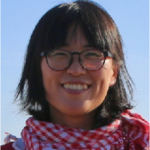
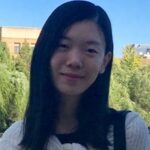

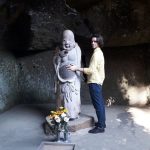


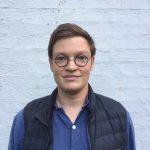

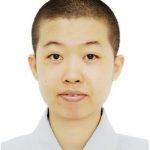

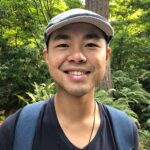
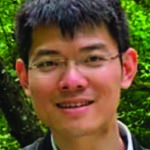

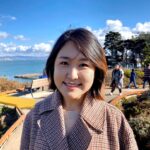


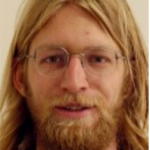
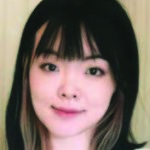
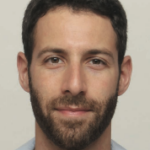


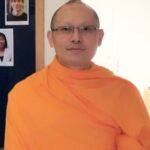
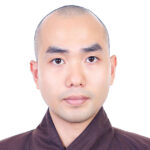

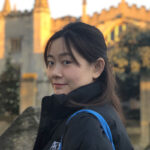
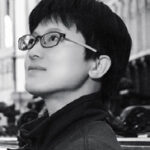
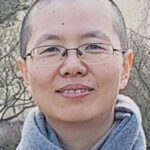

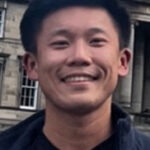


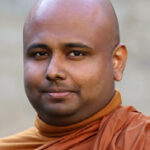
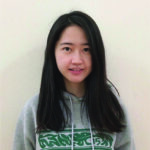


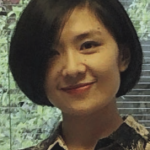



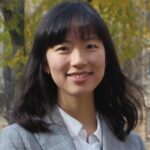


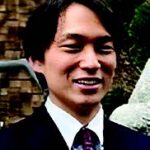
-150x150.jpeg)

-150x150.jpeg)